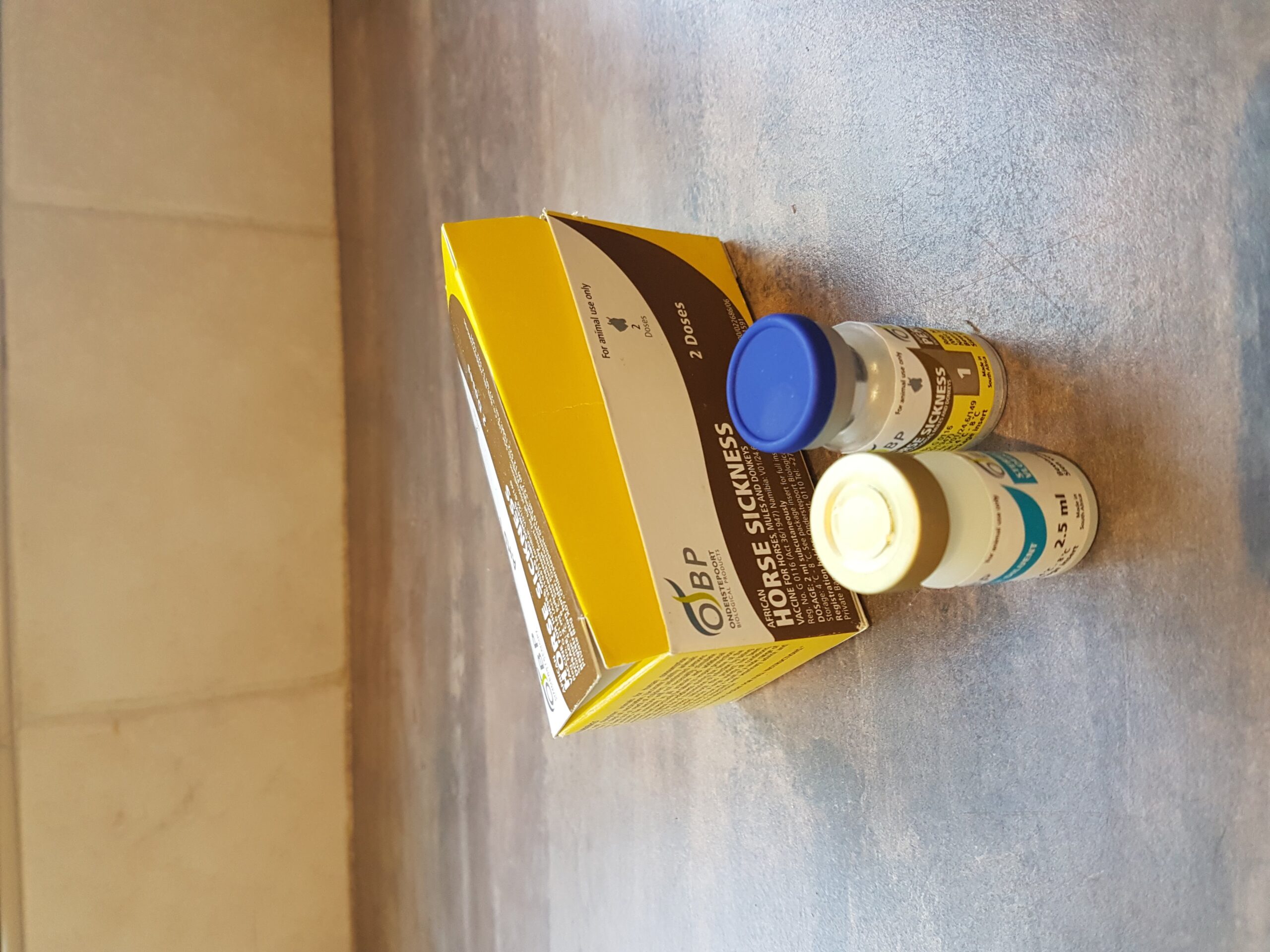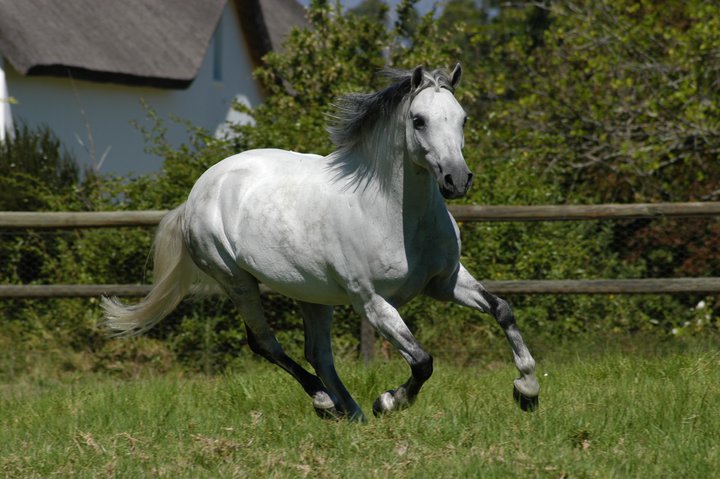Horse owners will again be able to vaccinate their animals against African horse sickness (AHS), with vaccines now available for veterinarians to administer to horses across South Africa.
Onderstepoort Biological Products (OBP) confirmed that on 16 May 2023 there were 25 896 AHS vaccine doses in stock, ready for packing and distribution, and that vaccine production was continuing.
“Our plans are on track to meet coverage for the 2023 vaccination season for AHS. OBP is now running a seven-day production week – possibly until the end of winter,” says OBP’s interim chief executive officer, Luvuyo Mabombo.
“This is excellent news for horse owners and veterinarians who have been struggling to get vaccines due to shortages over the past year,” says Dr Nandipha Ndudane, president of the South African Veterinary Council (SAVC).
“The SAVC urges horse owners to get their animals vaccinated against AHS between 1 June and 31 October 2023 – ahead of the summer months, when equine competition season ramps up. The vaccine gives the horse a very low, weakened AHS infection and it takes some time for the horse to build up an immune response to protect it against the field virus.
“It’s vital for equine welfare and disease control that horse vaccinations – such as those required for competition, insurance or export purposes – are both supplied and administered by an SAVC-registered veterinarian. The AHS vaccine consists of two doses given three weeks apart and horses may not compete in events within seven days of being vaccinated.”
Dr Mpho Maja, the director of animal health at the Department of Agriculture, Land Reform and Rural Development, says the OBP AHS vaccine is the only AHS vaccine registered under the Fertilizers, Farm Feeds, Agricultural Remedies and Stock Remedies Act (No. 36 of 1947). Therefore, it is the only vaccine that may be legally administered to a horse to prevent AHS.
Dr Maja cautions against using unregistered vaccines because their safety, quality and efficacy have not been tested, saying they are produced illegally without any control measures and may put horses at risk. AHS is a regional disease and there are no vaccines produced abroad that can be imported.
Dr Camilla Weyer, the senior research officer and AHS control manager at South African Equine Health and Protocols, who also chairs the South African Equine Veterinary Association, explains, “The registered AHS vaccine that we have in South Africa currently is a live attenuated vaccine produced by OBP. This vaccine is made up of two bottles: you have two separate vaccines with three and four separate viruses in them, respectively.”
It’s vital to vaccinate horses, donkeys, mules and their hybrids against AHS every year if they are within the AHS-infected zone or in the protection zone of the AHS-controlled area in the Western Cape. This is because horses have varied responses to the seven serotypes (or virus variations) contained in the two vaccine doses.
Marzanne Roets, national coordinator of the National Animal Health Forum, says, “We are optimistic that AHS vaccines will be steadily released to meet the equine industry’s needs. OBP is a world-class facility with all the necessary equipment needed to supply the national herd with the required vaccines for immunity. We would like to assist OBP in getting the vaccines out to the equine and livestock sectors.”
Roets adds that, with the support of Minister of Agriculture, Land Reform and Rural Development Thoko Didiza, communications channels are open to make provision for equine owners if there are vaccine issues or shortages. A technical task team appointed by the minister will assist in finding solutions.
OBP’s Mabombo explains that the “highly sensitive” imported machines used to manufacture the vaccines had been affected by the frequent power outages caused by load-shedding, but reassures horse owners of the facility’s technical capacity to manufacture animal vaccines and innovate new solutions.
This includes training specialised maintenance staff as part of its sustainability strategy. Private companies have also been helping to repair equipment in order to replenish vaccine stocks.
AHS is a controlled and notifiable disease in South Africa, which means that any cases must be reported to a state veterinarian. Dr Maja encourages horse owners to notify their vets as soon a horse shows any AHS symptoms, so that outbreaks can be effectively managed.

“There are nine serotypes of the AHS virus circulating in the country. There are no new strains that we know of, but two strains of AHS are not included in the OBP vaccine – because there is cross-protection between the different serotypes. Two of the serotypes in the second bottle of the vaccine provide cross-protection against the two serotypes or strains that are not included, making the vaccine effective against all strains,” says Dr Maja.
Dr Weyer says, “Most horses will not have a complete immune response to all serotypes after one dose of each bottle, and therefore repeated vaccination is needed to obtain what we refer to as polyvalent immunity, meaning immunity to all the serotypes. Some horses will still not respond to all serotypes even after repeated vaccinations, and this is why we sometimes see AHS clinical cases and even deaths in vaccinated animals.”
What else can horse owners do to help prevent AHS?
AHS is caused by horses being bitten by Culicoides midges carrying the disease. Dr Maja recommends taking the following non-pharmaceutical prevention measures:
- Midges breed in stagnant water – so empty out old tyres, cans, etc., and move horses to higher, drier areas
- Stable horses or keep them in buildings between dusk and dawn and use shade cloth on all openings – midges don’t like confined spaces and are mostly active at night
- Apply registered repellents (such as insecticides containing DEET and cypermethrin) or natural repellents
- If you suspect your horse has AHS, or any other disease, do not move it to another property
- Try to avoid stressful conditions (such as moving vast distances) for your horse during the peak season for AHS (late summer to early autumn)
Dr Weyer says movement control is often overlooked within the AHS-infected area, with the main focus usually being on movement control into the AHS-controlled area (in the Western Cape). “Movement is still going to be the biggest reason for outbreaks when it comes to the spread of viruses.”
SAVC vice-president Dr Brendan Tindall says, “We would like to remind horse owners to ensure that the vet supplying and administering the vaccines certifies the vaccination in horse passports, which are used to identify horses. Up-to-date vaccination certificates are required in horse passports to transport any horses into the controlled area and to participate in sporting and recreational events.
“Veterinarians must obtain documented proof of the horse’s identity (such as a microchip) from the owner when vaccinating the animal, and must be the custodian of a horse’s vaccination history before certifying its horse passport.”
In addition to AHS, horses should also be vaccinated against infectious diseases such as equine influenza, particularly if they are attending gatherings where other horses will be present. Equine influenza vaccines are imported and are readily available.
Source: SAVC









